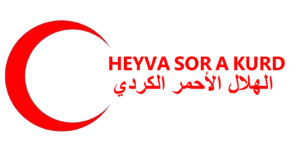A new campaign to provide clean drinking water for the people of Al-Hasakah city
In light of the crises affecting the city of Al-Hasakah, the efforts of the Kurdish Red Crescent stand out as a significant example of important humanitarian work. The organization is striving to provide clean drinking water to the residents in collaboration with Medico Switzerland, in response to the current situation. These efforts come at a critical time, as the city is experiencing a severe water shortage, which negatively impacts public health and exacerbates living conditions due to the lack of water from the Alouk station. These ongoing campaigns highlight the importance of community cooperation and coordination among communes and humanitarian organizations to address urgent challenges




















